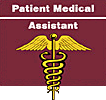 Return to the Home Page
Return to the Home Page
Has the patient been vomiting for more than 12 hours?
Is the patient becoming dehydrated?
Is there fever over 102 degrees Fahrenheit?
Have you seen blood in the vomit?
ACTIVITIES: You should not stay in bed if you feel like
being up.
TREATMENT and PREVENTION: Try any or all of the following:
MEDICATIONS: Most women will not need medications for nausea or vomiting caused by pregnancy. For persistent vomiting, you might try one of the following for 4 or 5 days:
CONTACT YOUR DOCTOR FOR ANY OF THE FOLLOWING:
1. You are feeling faint, lightheaded, or dizzy.
2. You see no improvement in a few days.
3. You are losing more than a few pounds.
4. Signs of dehydration occur: Dry mouth, little or no urine.
|
Eating Right During Pregnancy What you eat feeds your baby, so choose healthy foods and skip the junk and avoid alcohol. You need about 300 extra calories each day. Be sure to include the following in your daily diet:
You can get all the nutrients you need through what you eat. But your doctor may suggest taking prenatal mineral and vitamin pills that include iron to help protect you against anemia, calcium to help keep your bones strong, and folic acid (especially early in pregnancy or even before you get pregnant) to help prevent serious problems with your baby's developing brain and spinal cord. |
